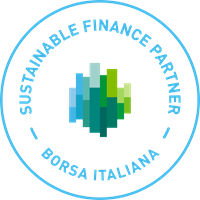Sustainability holds multiple opportunities for companies-economic, reputational, social-opportunities that enable them to approach stakeholders, beginning with employees and ending with banks and lending institutions, attentive to the dominant criterion of sustainability.
This thesis is confirmed by the increasing attention of companies to documents such as sustainability reports or balance sheets; companies that are preparing to report on their ESG performance even though they are not yet obligated under the provisions of the Corporate Social Responsibility Directive (CSRD).
Sustainability in the company is determined by the presence of sustainable policies and practices, activities that can be identified and implemented only after carefully investigating the company’s level of sustainability.
Defining the starting point, in fact, is essential to understand the existing gaps, one’s positioning with respect to the industry, and thus define effective strategies to improve its performance.
On April 27, 2023, Istat published the study “Sustainable Business Practices in 2022 and Prospects 2023-2025“; data from which interesting information emerges and invites reflection on the validity and recognizability of sustainable actions.
Measuring sustainability: why it matters and which tools to prefer
Before even talking about the sustainable practices to be implemented in the company, the most widespread ones, what Italian companies have already accomplished in 2022 in the field of sustainability and what is expected of them in the future, it is necessary to dwell on a concept that cannot be left out if the real intention of a company is to act for corporate sustainability: measurement.
Measuring sustainability means examining the company profile under the lens of environmental, social and economic sustainability.
What does the company do to protect the environment?
What practices does it adopt to make its processes and/or products more sustainable?
What resources are used to meet the company’s energy needs?
And in the social and governance sphere, does the company adopt specific policies to protect employees?
Does the company’s workforce have people assigned to the development of corporate sustainability?
Companies wishing to investigate corporate sustainability performance must first find an answer to these and other questions, and then understand what impact the actions taken have on the environment, society and stakeholders, and devise effective strategies and practices for achieving new goals to achieve corporate sustainability.
Sustainability in business: the assessment tools
To know their level of sustainability, companies undergo assessment tools aimed at defining the company’s ESG performance, investigating the relevant sector, and identifying possible actions to implement to improve their performance.
Assessment tools are quite common, sometimes consisting of free online questionnaires or paid assessment platforms (e.g., EcoVadis) that through specific questions or indicators guide the company toward understanding its performance and supply chain.
To make an informed and beneficial choice , it is essential to prefer assessment tools that are recognized and certified by international bodies, guarantors of a methodical and transparent approach to assessing corporate sustainability.
Sustainable practices: from environmental protection to social and economic sustainability
Companies take different actions to strengthen and improve their sustainability performance.
The study published by Istat last April, “Sustainable Business Practices in 2022 and the 2023-2025 Outlook,” shows a higher attitude toward sustainability practices by large enterprises, with 81.5 percent compared to 36.1 percent for small enterprises.
In 2022, the most active companies in sustainability were manufacturing companies (59.5 percent) and service companies (50.4 percent).
In both sectors, the focus on environmental protection practices seems most evident, followed by actions for social and economic sustainability.
Popular sustainable practices include: the use of renewable energy sources and energy efficiency actions; followed by interest in circular processes for water recycling, use of secondary raw materials, and adherence to industrial symbiosis.
64.5 percent of manufacturing companies surveyed for the Istat survey say they will be even more active in this area in the three-year period 2023-2025.
This growing trend is confirmed by 52.5 percent of service companies, which declare more commitment with concrete actions in all sustainability areas surveyed.
A company’s sustainability is measured by the activities and practices it implements in the area of ESG – Environment, Social, Governance. Environmental (Environment) practices are geared toward measuring and improving over time the impact that company activities, processes and products have on the environment.
These practices-which find concrete expression in studies and management systems that follow ISO standards-aim to:
- to reducing the climate and environmental footprint of the organization, products or services;
- To the responsible management of energy, water, and waste resources;
- to the implementation of technologies and methods for the development of circular processes aimed at the reuse and recycling of secondary raw materials, production waste, waste and natural resources.
Social sustainability (Social) practices cover the policies adopted, protocols implemented and actions taken by the company to care for, grow and manage employees, develop the local community and promote the issues and values cherished by the company.
Sustainability in employee management is closely related, for example:
- To the implementation of a management system for worker health and safety that complies with current legislative standards;
- To the adoption of procedures to ensure clean workplaces;
- To the establishment of a plan for general and specific professional training of employees;
- to the introduction of strategies aimed at worker well-being, to ensure work-life balance (e.g., childcare, wellness classes, etc.), to ensure gender and wage equality, inclusion, internal communication;
- To the implementation of procedures to ensure data privacy and security.
In addition, the actions that the company takes toward the local community, investing part of its value for the development of society, through:
- activities to raise awareness of issues and values dear to the company (e.g., diversity, corporate responsibility, climate change);
- donations or financial support to local and/or sector governments or agencies;
Finally, there are the practices for the development of ethical and responsible governance (Governance); a sphere that purely affects the corporate workforce, value chain, principles of transparency, clarity, legality, whistleblower management and more.
These practices aim to:
- To strengthen corporate economic stability;
- To define the economic value generated and distributed among stakeholders;
- To improve risk management;
- To increase the ability to define and disseminate corporate ethics and behavior principles;
- To ensure compliance with principles, rules and procedures related to corporate compliance.
Corporate sustainability consulting: recognition Tecno
Companies that have chosen and continue to prefer our method for measuring, investigating and improving corporate sustainability access beneficial opportunities that go far beyond the provision of one or more services.
- Team of consultants and engineers experienced in corporate sustainability;
- Certified and recognized GRI ESG assessment platform;
- ISO-compliant methods and international standards for sustainability reporting;
- Training activities on ESG issues and the importance of sustainable practices in the company;
- Customized communication plans to promote corporate engagement and avoid greenwashing.
Make a responsible choice to ensure sustainable and real growth for your company.


